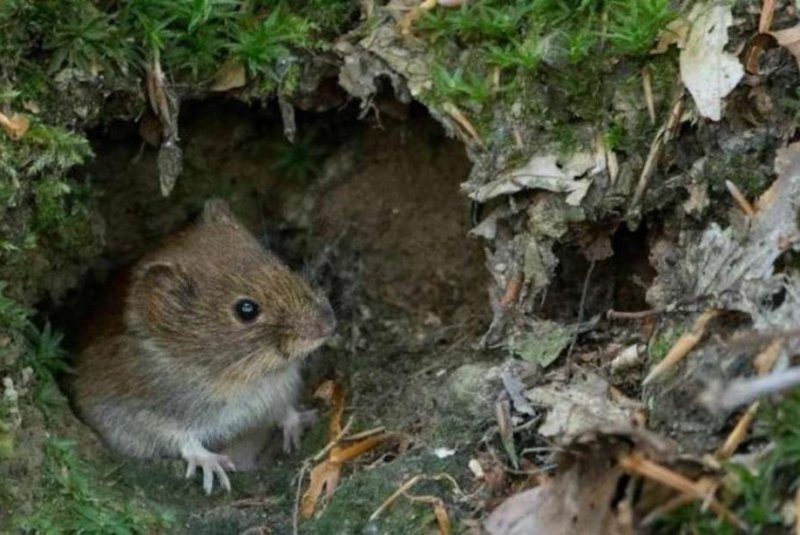Female voles that interacted with males scared after an encounter with a weasel went on to produce more pups in their subsequent litter. Photo by University of Jyväskylä
Nov. 21 (UPI) -- Fear is a powerful motivator -- powerful enough to inspire a 50 percent increase in rodent offspring.
Researchers in Finland and the Netherlands studying the effects of fear on behavior and population dynamics among small mammals found female voles exposed to the pheromones made by frightened males produced larger litters than unexposed females.
"What is most striking about this study is that the cause of the change in numerical reproduction was indirect," Marko Haapakoski, a postdoctoral researcher at the University of Jyväskylä in Finland, said in a news release. "Second-hand information about predators was sufficient to increase the number of offspring."
Predators don't just kill prey. Their mere presence can impact the movements and decisions of the critters they hunt. The threat of a swooping owl or pouncing weasel impacts the behavior of smaller mammals like voles.
The new study -- published Wednesday in the journal Scientific Reports -- suggests fear can impact the behavior of animals that never actually see, hear or smell an actual predator.
"When a separate group of male voles were exposed to a weasel, they produced chemical messages that could be read by the voles in our study," said researcher Alwin Hardenbol.
Previous studies suggests female voles can take steps to alter the size of their litter. For example, females can produce more pups my mating with multiple males.
Researchers think the exposure to pheromones triggered by fear reminded females of their vulnerability and the possibility that their next litter could be their last. As a result, the females produce larger litters.
"This innovative experimental study bridges the proximate and ultimate explanations of small mammal behavioral responses. It's been long hypothesized that small, highly fecund species like voles might respond to heavy predation via reproductive compensation," said Danielle Lee of the Southern Illinois, University, who did not participate in the research. "This field study shows how these responses are mediated via chemo-olfactory cues. The work demonstrates once again the importance of this modality for intraspecific communication, population regulation, and trophic interactions."
Previous studies prove fear doesn't always boost reproduction. An earlier study of raccoons on British Columbia's Gulf Islands found the sound of barking dogs -- and the fear it inspired -- worked to diminish the raccoons' rates of consumption and reproduction.















